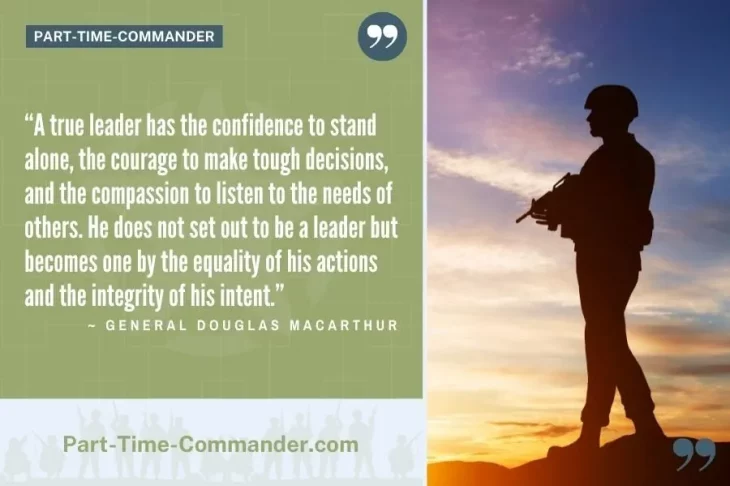Military Spouses Should Dare to Be Independent
“…should I draw you the picture of my Heart, it would be what I hope you still would Love; tho it containd nothing New; the early possession you obtained there; and the absolute power you have ever mantaindover it; leaves not the smallest space unoccupied. I look back to the early days of our acquaintance; and Friendship, as to the days of Love and Innocence; and with an undiscribable pleasure I have seen near a score of years roll over our Heads, with an affection heightned and improved by time — nor have the dreary years of absence in the smallest degree effaced from my mind the Image of the dear untittled man to whom I gave my Heart.”
— Letter from Abigail Adams to John Adams, 23 December 1782 [electronic edition]. Adams Family Papers: An Electronic Archive. Massachusetts Historical Society. http://www.masshist.org/digitaladams/
A military spouse should read the letters of John and Abigail Adams to see how couples used to communicate in previous centuries especially when the two members were apart from each other. The letters between these two politically astute individuals also demonstrate how share emotions and discuss issues internal and external to their relationship while across the miles. In this correspondence, military members and their spouses witness a mixture of political discussion and idea sharing along with a tapestry of romantic longing for each other.
John Adams was an ambitious country lawyer who would rise from humble origins to be an active voice in the American Revolution, Continental Congress Member, diplomat to France and Holland, Ambassador to Great Britain, Vice President, and President. During his career, Mr. Adams spent long periods of time separated from his wife Abigail and children while pursuing advancement. Country Lawyer Adams spent a majority of his time away from his family (doing this for many years) and starting in 1775, he had extended periods of time away from his family culminating with a five year absence while serving in Europe. Correspondence became the lifeline for those two across the miles, allowing them to still share their lives and motivating each other.
The Female Adams was known as quite the woman for her ages, though not formally educated, she had a keen intelligence, was vociferous reader and writer to her husband, and an intellectual advisor to her husband. She was quite different than her contemporary wives but aligned herself in a social conservative understanding while gaining the reputation amongst the political elites for her character and attitude. She was his most respected and important advisor during his legal and political career while providing sometimes a counter to his logical thought processes thus strengthening his positions. The Adams were the first U.S. “Power Couple“, respected by others, who realized there would need to be individual sacrifices for their to be success as defined in their relationship.
Abigail is a good example for military spouses who have to adjust their ambitions for their spouse’s career. Many military spouses delay their own ambitions or over time grow complacent with military life due to the cultural stressors and moving every three years. Many military spouses (and not all of them) fall into the trap where they are the stay at home spouse who becomes dependent upon the military life to fill the emotional or mental voids in their lives due to putting their ambitions on hold. When the military spouse does not carve out their own sphere of influence or identity, they become lost and dare not make decisions that are quite contrary to what they know.
While John was separated from the family on business, Abigail did not relegate herself to silently sitting in her own domestic world that cultural morays of the time would dictate, she was active in political discussions and leading her family through multiple challenges. She boldly had her children inoculated against smallpox as it ravaged the Boston area in 1776 boldly going against the public opinion at the time. Even though she did not relish the public sphere, she had strong beliefs in women’s education, abolition of slavery, and an ardent patriot. She effectively managed the family farm, with no slaves, so well that she was able to purchase over 1000 acres in Vermont while battling the economic pressures and inflation. Even with her own educational concerns regarding grammar and spelling, Abigail educated her children, especially John Quincy, and even questioned the classical methods of education for children.
Mrs. Adams may not be a “modern” military spouse, but her story opens the discussion on what makes a good military spouse. Most importantly, military spouses must keep their own individual identity and still pursue their own priorities even with the pressures of military life, being a spouse, and having children. Many military spouses are no different than their spouse who deploys and devotes their lives to their military life; they become consumed with life’s stressors and revert to default survival mode. Understandable considering they sacrifice their own personal and career ambitions to travel wherever the military member is assigned; this constant change and lack of opportunity can be difficult.
“Dependapotamus” is the slang term military members use to describe the military spouses who are perceived to do nothing but take up space. This is the last thing military spouses should be (perceived to be) as an unfulfilled spouse; happy spouse, happy house. Purpose is the one thing we all need; the military member hopefully finds some purpose through their military service and the military spouse must also have a purpose.
Remember… you are not your military member nor are you their rank. You are something separate.
So for those military spouses out there: aim for something that makes you honestly yourself. Have an independent spirit and ambition while maintaining your relationship with your military member. Take the little steps in your daily life to ensure your independent spirit, goals, and ambitions are evident while appreciating the military structure and lifestyle that your family is apart of. Similar to those military individuals who use the military to define their own lifestyle, thought-processes, and identity, military spouses who do the same are no better. Military spouses should dare to be independent; have their own life.
Independent spirit can be practiced in many different forms and not necessarily in the “Hot Topic being independent” type. Carve out your sphere of the world Get out of the house and volunteer at one of the facilities on post; donate your time to some of the agencies that need help providing services to others. Get off the military base (both CONUS and OCONUS), volunteer at an organization or church where you can meet local civilians so that you can see how local culture defines the area. Find a part-time job or mini-job that allows you keep your own career ambitions alive; with the pandemic, “home office” jobs are even more possible. Think about the ways you can improve yourself.
If you are considering children or expanding the family, ensure you balance this with your own personal goals. Starting or expanding a family will limit options for one to develop their goals.
Even with young children, take the time to follow your own passion projects or explore the hobbies you may have put on the side for the last several years while moving between bases. There is always time for enjoyable hobbies that help define your spirit while giving you purpose. Fulfillment does not need to focus on employment, but there are many challenges out there for military spouses.
|
The Rand Corporation report “Working Around the Military.” |
|---|
Sometimes the independent spirit takes you away from your military member. There may be opportunities when one takes a job or does schooling in a separate city, state, or country away from the assigned installation for months or years. This author and their spouse have spent assignments apart from each other so that the military spouse can have their own career ambitions. A military couple, whom the author knows, are discussing options where the military member will PCS to CONUS while the military spouse will stay in Germany with the civilian job they enjoy. This author’s mentor was a Group Commander and completed their entire two-year command while their spouse and family stayed behind on the East Coast.
These are some tough decisions and conversations to be had, but all of these options across the spectrum should be had with your military member. The family is a team and even if someone makes the final decisions as the team leader, it is vital that everyone’s interests, ambitions, and thoughts be taken into consideration when moving forward. As the military spouse the goal is to ensure you have your own independent voice and are fulfilled in their daily life.

Pred
A 19 year Active Duty Air Force Officer who has a spouse that is active and independent outside the military structure. Both of us encourage spouses to find fulfillment and be


